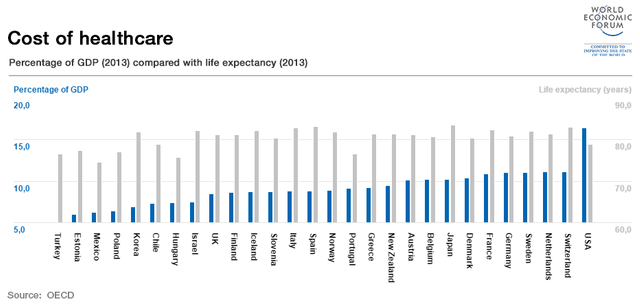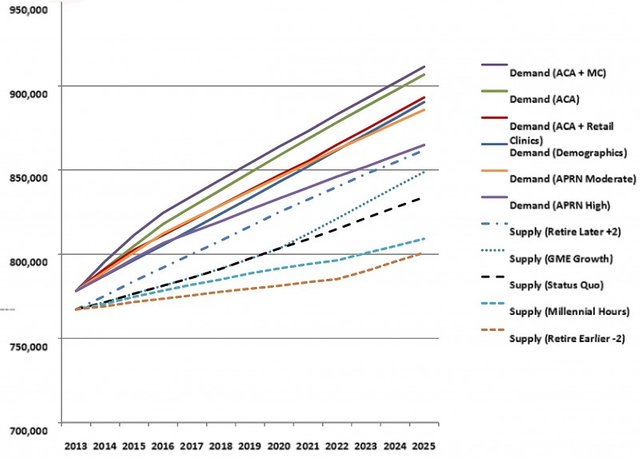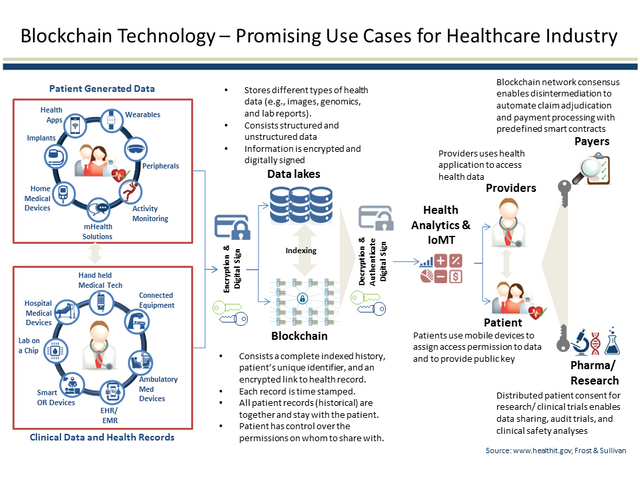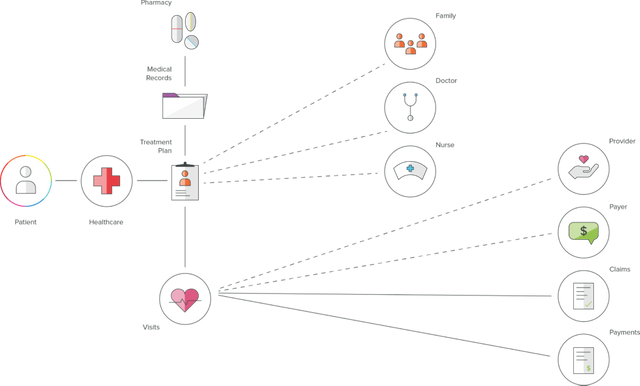Solving Real World Problems – Improving The Quality of Life The Decentralized Way
It’s heartening when we see innovations being applied to something that matters - improve the lives of people. Although I would agree that this means different things to different people. To Silicon Valley guys, raising millions of dollars to create yet another rumor app is “world-changing” and other buzzwords marketing geeks throw around to spice up their mission statement. First World Problems?
A couple of days ago, I decided to start writing about real use cases behind the recent blockchain/crypto craze. And it’s been an interesting undertaking so far.
Almost at the same time Brave’s Basic Attention Token was making records with its ICO, Patientory was concluding its own too. Raising $7.2 million in three days. The Patientory app token was built to provide a unified platform for medical records.

Issues with The Current Health Care System
A nation’s quality of life depends on its’ health care sector. While many countries have gotten this setup in an efficient manner, it’s sad that several countries still have bad health care systems. It’s even more annoying when such countries are developed western countries who have billions of dollars as budgeted health expenditures. The case of US is an upsetting example.
In fact, the country is nowhere to be found in the top 10 list of developed countries with best healthcare systems. A quick Google search will provide you a myriad of problems rocking the health care system and judging from current happenings, things might get worse.
Of Highly Priced Drugs, Blatant Ripoffs And Wasted Expenditure
These are perhaps the biggest problems in the health care sector. In the case of US, there is so much spending for such an underwhelming sector. The chart below buttresses this fact:

A recent Jan 2017 OECD study revealed that the US among other countries wastes about 20% of their health-care expenditures. With millions of needy people, something urgent has to be done.
Pharmaceutical companies are most times left with no choice than to inflate the prices of drugs due to the bureaucratic expenses incurred. There are however those who do it excessively too. Remember Shkreli?
Saving lives should be treated with far more importance than profits.
Overworked Endangered Species
Why train lifesavers when there are weapons of mass destruction to be bought? A raise for training new doctors will not be approved but buying killer fighter jets is a no brainer.

^Demands far exceeds supply
What does this lead to? Higher waiting times for patients, lost working hours and overworked doctors who have more than enough to fill their plate. As if this is not enough, hospital management boards subject them to tasking records too.
Blockchain to the Rescue: Beyond A Fad
Like all other innovations, Bitcoin and its blockchain technology have been labeled with various terms. Fad, scam, Ponzi scheme, name them all. Now that it’s reaching wider adoption, it will be wrong to think that the Blockchain tech can only be adapted to the financial sector alone. The Linux Foundation aims to change this notion by encouraging the hyperledger project- a collaboration to advance blockchain application across various industries.
For the health care sector, there is the Hyperledger Healthcare Working Group consisting of companies like IBM, Accenture, and others. They are to encourage the development of working use cases of the blockchain to solve the various problems plaguing the health care system.
Why So much Focus on Data Records?
Literally, all efforts you see in the news about blockchain applications have been about data interoperability and security. As depicted by the Forbes illustration below, even governmental inquiries have mostly been focused on that:

Creating A Universal Source of truth
At first, six-figure dollars was being spent annually to make paper records of health care transactions leading to even more stress on the understaffed workforce. Over time, hospitals started implementing Electronic Record Systems to automate several of these task leading to a more productive workforce.
However, a huge problem arose from each hospital having customized EHRs: Creation of a firewall around patients' health information. While this was/still is beneficial to the profit-making hospital management boards, the casualties are the millions of patients seeking various treatment in many hospitals at the same time.
Each hospital treated its EHR as the single source of truth only relying on its collated data points. Patients who needed to use their personal health information to work with other doctors and specialists had no other choice that creating new records with them leading to higher charges.
Blockchain Tech Can Change This

Rather than having several centralized duplicated EHRs, Blockchain can provide a distributed, cryptographically secure ledger that records all patients’ information thereby making it available to all authorized parties.
Gem Health, HarmonIQ, and Tierion are some blockchain solutions aiming to create a universal data infrastructure.
Here’s a short video by Fortune showing a Gem executive talk about how blockchain is helping to save money and create a universal source of truth.
Reducing Medical Errors
Another reason why there is so much emphasis on having a decentralized EHRs is that it can help reduce the rate at which medical errors (poor tracking of surgeries outcome, wrong diagnostics et al) are made. It’s a huge problem! A recent study posits that ‘medical errors’ is now the 3rd leading cause of death in the US.
Having a platform that makes data exchange and tracking easy can help to substantially reduce these errors.
Patientory and Cybersecurity
Last month, a number of hospitals in the US, UK and a part of Spain were massively hit with the ransomware called Wannacry. Exploiting a bug, hospital operations were locked down by the attackers in exchange for a ransom of $300.
Because hospitals need timely information about a patient to perform surgeries, recommend drugs etc, they are easy targets of ransom wares as they are more likely to cave in quickly for fear of privacy violations and HIPAA compliance lawsuits.
Patientory unique blockchain app is here to solve that. Its’ HIPAA complaint blockchain based app help mitigate data breaches and provide a decentralized data architecture that is transparent and secure.
Other Use Cases –
Other startups are also trying to apply the beauty of blockchain to other healthcare sector niches like Billing Management, Drug Supply Chain, and Claims Adjudication
Conclusion
The Blockchain is a new technology in terms of mass adoption but it’s already providing immense solutions to age-long problems plaguing the healthcare industry.
Applying decentralization to the healthcare sector is without its own attendant challenges. However, it’s hoped that as more companies and governmental bodies devote attention and resources to the development of blockchain apps for the healthcare industry, things will get better and we can finally have a healthcare system citizens will be proud of.
Over to you
What’s your biggest pet peeve about your country’s healthcare system?
Sources:
1 – 2 – 3 – 4 – 5 – 6 – 7 – 8 - 9 – 10
I don't understand how a healthcare blockchain is any better than a well designed central database which all hospitals could be forced to use. With regular backups to avoid the wannacry issue.
Also on privacy: will this make health records public? If so, will 3rd parties pick up on this data and start using it for marketing, loan applications, insurance etc etc?
No, centralized databases proved itself untrustful as the concept of being centralized holds the one and only source of trust, and if it gets compromised (and it will, 0day using viruses will appear periodically) there will be data loss/exposure, varying from non-zero to 100% (assuming there are backups made, and level at which data is encrypted).
Blockchain can eliminate this problem, as it gives extreme level of trustfulness to database current state, due to multiple trust nodes over the network which one by one sign trustful transactions.
However, your point is valid, because there are multiple nodes which hold same data state and all transactions being publicly available, the privacy is to be concerned about. There are ways to make nodes do extra steps on assuring transaction stays private and does not expose critical data. But the certainly we can say that, centralized database has definite advantage over blockchain (yet) at this point.
You can read this article as it has points I gave in this commentary: http://www.multichain.com/blog/2016/03/blockchains-vs-centralized-databases/
Thanks for the detailed opinion @tensorflow!
Great post @infovore!
Follow you:)
Couldn't have given a more succinct answer. Thanks for dropping by.
They could do encryptions on names and sensitive data, but still make most info public if there is a need.
Costs for what and how long thing take and where items are sourced from need to be shown. When everyone knows the costs we can better know if we r getting ripped off or not and go somewhere else
Exactly. Most companies contract private blockchains for their decentralization forays
Blockchain is not the future. It is the present and happening! Steemit is one of the best products of blockchain technology!
I'm actually happy to have a decent health care insurance so that I don't have to worry much about it. But anyways it's always so great to hear how many issues are tackled by the blockchain technology. I hope they succeed!
Sounds like you didn't get struck by the issues introduced back under Obamas health care policies, so far at least? Good to hear.
I am in a similar boat only because my company provides it at a cheaper rate. But out of pocket to see anyone is like 150 dollars each time. Still seems like I dont get much.
You are still lucky though to receive some support from your company. I got some friends studying and they got to pay a small fortund just to be insured. I mean they are students so the money is short anyways already 😕
Good for you! It's always nice to see someone not being shortchanged/ripoffed by the insurance companies.
But by seeing one person being treated well by insurance you always got at least two others who aren't 😕 Those companies are just modern criminals in some way but they will never get charged for anything, so that improvement will be hard to achieve☹
Great article. I am happy to note that blockchain can also be used to improve healthcare. I agreed that more budget should be allocated to heaith care instead of spending on weapons.
Yeah. There are several industries that blockchain solutions can help improve their operational processes. I will be writing about more of them in the coming days. And yes! It's saddening that more money is being spent to kill than to save lives.
This is an outstanding post. It was great to see you not engage in simple capital scapegoating too, but rather try to break it down into some tangible issues that we can actually solve.
I bet a blockchain markeplace, to trade the actual healthservices over, could reduce prices drastically as well. Although there could be some initial quirks with monopolistic tendensies, ultimately it should give the consumer more influence over prices tendencies.
Thanks for the compliment. It would be lovely to see the practicalities of your proposal.
You are correct. There are so many social issue in the world. Just like child abuse, poor, crime and human right issue in third world country. These are what we need to concern.
Exactly! Even in First World countries like US, there are lot of social ills especially in the colored segments of the society.
With the arrival of VIVAconomy, a lot of it will be dealt with. What if we started looking at the price of surgery or dentistry as well!?! There's some insanity in that field too right now...
It is actually worthwhile to go to other countries to have some of it done and dealt with for a fraction of the price and, often, the same quality I'd get in Canada.
Thanks a bunch for this great piece, as always, and namaste :)
Thanks for your insight. The medical tourism niche is a big industry on its own.
Canada is a country that has free healthcare, BUT at the cost of long wait times, for essential services, such as CAT scan
s and MRIs etc. Our country lacks Doctors and in smaller communities it can be a 3-4 year wait just to get a family doctor. A lot of smaller communities also get practicing doctors so the service takes longer to get processed by the new intern, then to wait to relay the information to the actual doctor, I am ok with this cause they have to learn but why is it mostly small towns.Wow... And I thought Canada's healthcare was better than that of US. You can't have it all, I guess.
It just occurred to me the current way the government handles information is centralized with not interconnectivity or compatibility. For example, each different department has the same information, but it is all on different systems (and most are antiquated), so the systems can't share information for efficiency.
However the blockchain brings de-centalization with compatibility. Control of the system is not maintained by the government, but it can be on the same blockchain, creating efficiencies.
Usually in business, centralization can create efficiencies, not decentralization. Only the government can manage to screw that up!
Thanks for a thought-provoking article. I'll look for more background on the Patientory journey, for instance. You asked about the health care system in our countries - we live in South Africa and our country's system is in deep jeopardy with a government looking to fully centralise it while at the same time not providing close to the level of service that people in the 21st century deserve. Private sector solutions from health care insurance to private hospitals have moved into the breach to create a highly imbalanced system where those who can afford it (and I'm deeply thankful we're among them) get world class care. South Africa could be an interesting test bed for blockchain based solutions for healthcare to even out those imbalances without destroying the high quality of care delivered through the private sector.
The beautiful thing about all crypto currency, and especially in this context, is what it's all about: Power to the People. Upvoted.